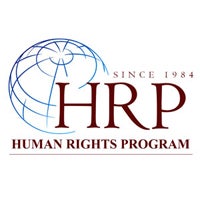On June 17, Harvard Law School’s International Human Rights Clinic submitted an amicus curiae brief to the U.S. Supreme Court in support of a petition for certiorari in a major corporate Alien Tort Statute (“ATS”) case, Kiobel v. Royal Dutch Petroleum Co.
The clinic served as counsel of record on behalf of professors of legal history who argue that Congress adopted the ATS to provide plaintiffs with a meaningful domestic remedy in federal court for violations of international law. According to the amici, creating a special exemption for corporate defendants, as the Second Circuit did in Kiobel, contradicts the original purpose of the statute as well as its plain text, and ignores the history of enforcement of international law violations against corporations.
“Dating back to the 1600s, with cases against the East India Company involving violations of international law, the historical record shows that the Second Circuit erred in its ruling,” said Clinical Director Tyler Giannini. “The drafters of the Alien Tort Statute wanted to provide a broad remedy for all torts in violation of the law of nations, and the text of the statute excludes no class of defendant.”
Giannini and Associate Clinical Director Susan Farbstein ’04 served as counsel and supervised the writing of the brief. Harvard Law School students Poppy Alexander ’12, Russell Kornblith ’12, and Marissa Vahlsing ’11, contributed to the research, conceptualization, and drafting of the brief.
For more information about the brief, and for additional clinic news, visit the IHRC blog.
